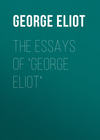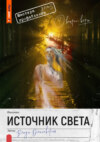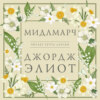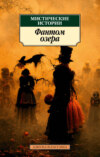Kitobni o'qish: «The Essays of "George Eliot"»
PREFACE
Since the death of George Eliot much public curiosity has been excited by the repeated allusions to, and quotations from, her contributions to periodical literature, and a leading newspaper gives expression to a general wish when it says that “this series of striking essays ought to be collected and reprinted, both because of substantive worth and because of the light they throw on the author’s literary canons and predilections.” In fact, the articles which were published anonymously in The Westminster Review have been so pointedly designated by the editor, and the biographical sketch in the “Famous Women” series is so emphatic in its praise of them, and so copious in its extracts from one and the least important one of them, that the publication of all the Review and magazine articles of the renowned novelist, without abridgment or alteration, would seem but an act of fair play to her fame, while at the same time a compliance with a reasonable public demand.
Nor are these first steps in her wonderful intellectual progress any the less, but are all the more noteworthy, for being first steps. “To ignore this stage,” says the author of the valuable little volume to which we have just referred – “to ignore this stage in George Eliot’s mental development would be to lose one of the connecting links in her history.” Furthermore, “nothing in her fictions excels the style of these papers.” Here is all her “epigrammatic felicity,” and an irony not surpassed by Heine himself, while her paper on the poet Young is one of her wittiest bits of critical analysis.
Her translation of Status’s “Life of Jesus” was published in 1840, and her translation of Feuerbach’s “Essence of Christianity” in 1854. Her translation of Spinoza’s “Ethics” was finished the same year, but remains unpublished. She was associate editor of The Westminster Review from 1851 to 1853. She was about twenty-seven years of age when her first translation appeared, thirty-three when the first of these magazine articles appeared, thirty-eight at the publication of her first story, and fifty-nine when she finished “Theophrastus Such.” Two years after she died, at the age of sixty-one. So that George Eliot’s literary life covered a period of about thirty-two years.
The introductory chapter on her “Analysis of Motives” first appeared as a magazine article, and appears here at the request of the publishers, after having been carefully revised, indeed almost entirely rewritten by its author.
“GEORGE ELIOT’S” ANALYSIS OF MOTIVES
George Eliot is the greatest of the novelists in the delineation of feeling and the analysis of motives. In “uncovering certain human lots, and seeing how they are woven and interwoven,” some marvellous work has been done by this master in the two arts of rhetoric and fiction.
If you say the telling of a story is her forte, you put her below Wilkie Collins or Mrs. Oliphant; if you say her object is to give a picture of English society, she is surpassed by Bulwer and Trollope; if she be called a satirist of society, Thackeray is her superior; if she intends to illustrate the absurdity of behavior, she is eclipsed by Dickens; but if the analysis of human motives be her forte and art, she stands first, and it is very doubtful whether any artist in fiction is entitled to stand second. She reaches clear in and touches the most secret and the most delicate spring of human action. She has done this so well, so apart from the doing of everything else, and so, in spite of doing some other things indifferently, that she works on a line quite her own, and quite alone, as a creative artist in fiction. Others have done this incidentally and occasionally, as Charlotte Brontë and Walter Scott, but George Eliot does it elaborately, with laborious painstaking, with purpose aforethought. Scott said of Richardson: “In his survey of the heart he left neither head, bay, nor inlet behind him until he had traced its soundings, and laid it down in his chart with all its minute sinuosities, its depths and its shallows.”
This is too much to say of Richardson, but it is not too much to say of George Eliot. She has sounded depths and explored sinuosities of the human heart which were utterly unknown to the author of “Clarissa Harlowe.” It is like looking into the translucent brook – you see the wriggling tad, the darting minnow, the leisurely trout, the motionless pike, while in the bays and inlets you see the infusoria and animalculæ as well.
George Eliot belongs to and is the greatest of the school of artists in fiction who write fiction as a means to an end, instead of as an end. And, while she certainly is not a story-teller of the first order, considered simply as a story-teller, her novels are a striking illustration of the power of fiction as a means to an end. They remind us, as few other stories do, of the fact that however inferior the story may be considered simply as a story, it is indispensable to the delineation of character. No other form of composition, no discourse, or essay, or series of independent sketches, however successful, could succeed in bringing out character equal to the novel. Herein is at once the justification of the power of fiction. “He spake a parable,” with an “end” in view which could not be so expeditiously attained by any other form of address.
A story of the first-class, with the story as end in itself, and a story of the first class told as a means to an end, has never been, and it is not likely ever will be, found together. The novel with a purpose is fatal to the novel written simply to excite by a plot, or divert by pictures of scenery, or entertain as a mere panorama of social life. So intense is George Eliot’s desire to dissect the human heart and discover its motives, that plot, diction, situations, and even consistency in the vocabulary of the characters, are all made subservient to it. With her it is not so much that the characters do thus and so, but why they do thus and so. Dickens portrays the behavior, George Eliot dissects the motive of the behavior. Here comes the human creature, says Dickens, now let us see how he will behave. Here comes the human creature, says George Eliot, now let us see why he behaves.
“Suppose,” she says, “suppose we turn from outside estimates of a man, to wonder with keener interest what is the report of his own consciousness about his doings, with what hindrances he is carrying on his daily labors, and with what spirit he wrestles against universal pressure, which may one day be too heavy for him and bring his heart to a final pause.” The outside estimate is the work of Dickens and Thackeray, the inside estimate is the work of George Eliot.
Observe in the opening pages of the great novel of “Middlemarch” how soon we pass from the outside dress to the inside reasons for it, from the costume to the motives which control it and color it. It was “only to close observers that Celia’s dress differed from her sister’s,” and had “a shade of coquetry in its arrangements.” Dorothea’s “plain dressing was due to mixed conditions, in most of which her sister shared.” They were both influenced by “the pride of being ladies,” of belonging to a stock not exactly aristocratic, but unquestionably “good.” The very quotation of the word good is significant and suggestive. There were “no parcel-tying forefathers” in the Brooke pedigree. A Puritan forefather, “who served under Cromwell, but afterward conformed and managed to come out of all political troubles as the proprietor of a respectable family estate,” had a hand in Dorothea’s “plain” wardrobe. “She could not reconcile the anxieties of a spiritual life involving eternal consequences with a keen interest in gimp and artificial protrusions of drapery,” but Celia “had that common-sense which is able to accept momentous doctrines without any eccentric agitation.” Both were examples of “reversion.” Then, as an instance of heredity working itself out in character “in Mr. Brooke, the hereditary strain of Puritan energy was clearly in abeyance, but in his niece Dorothea it glowed alike through faults and virtues.”
Could anything be more natural than for a woman with this passion for, and skill in, “unravelling certain human lots,” to lay herself out upon the human lot of woman, with all her “passionate patience of genius?” One would say this was inevitable. And, for a delineation of what that lot of woman really is, as made for her, there is nothing in all literature equal to what we find in “Middlemarch,” “Romola,” “Daniel Deronda,” and “Janet’s Repentance.” “She was a woman, and could not make her own lot.” Never before, indeed, was so much got out of the word “lot.” Never was that little word so hard worked, or well worked. “We women,” says Gwendolen Harleth, “must stay where we grow, or where the gardeners like to transplant us. We are brought up like the flowers, to look as pretty as we can, and be dull without complaining. That is my notion about the plants, and that is the reason why some of them have got poisonous.” To appreciate the work that George Eliot has done you must read her with the determination of finding out the reason why Gwendolen Harleth “became poisonous,” and Dorothea, with all her brains and “plans,” a failure; why “the many Theresas find for themselves no epic life, only a life of mistakes, the offspring of a certain spiritual grandeur ill-matched with the meanness of opportunity.” You must search these marvellous studies in motives for the key to the blunders of “the blundering lives” of woman which “some have felt are due to the inconvenient indefiniteness with which the Supreme power has fashioned the natures of women.” But as there is not “one level of feminine incompetence as strict as the ability to count three and no more, the social lot of woman cannot be treated with scientific certitude.” It is treated with a dissective delineation in the women of George Eliot unequalled in the pages of fiction.
And then woman’s lot, as respects her “social promotion” in matrimony, so much sought, and so necessary for her to seek, even in spite of her conscience, and at the expense of her happiness – the unravelling of that lot would also come very natural to this expert unraveller. And never have we had the causes of woman’s “blunders” in match-making, and man’s blunders in love-making, told with such analytic acumen, or with such pathetic and sarcastic eloquence. It is not far from the question of woman’s social lot to the question of questions of human life, the question which has so tremendous an influence upon the fortunes of mankind and womankind, the question which it is so easy for one party to “pop” and so difficult for the other party to answer intelligently or sagaciously.
Why does the young man fall in love with the young woman who is most unfit for him of all the young women of his acquaintance, and why does the young woman accept the young man, or the old man, who is better adapted to making her life unendurable than any other man of her circle of acquaintances? Why does the stalwart Adam Bede fall in love with Hetty Sorrel, “who had nothing more than her beauty to recommend her?” The delineator of his motives “respects him none the less.” She thinks that “the deep love he had for that sweet, rounded, dark-eyed Hetty, of whose inward self he was really very ignorant, came out of the very strength of his nature, and not out of any inconsistent weakness. Is it any weakness, pray, to be wrought upon by exquisite music? To feel its wondrous harmonies searching the subtlest windings of your soul, the delicate fibres of life which no memory can penetrate, and binding together your whole being, past and present, in one unspeakable vibration? If not, then neither is it a weakness to be so wrought upon by the exquisite curves of a woman’s cheek, and neck, and arms; by the liquid depth of her beseeching eyes, or the sweet girlish pout of her lips. For the beauty of a lovely woman is like music – what can one say more?” And so “the noblest nature is often blinded to the character of the woman’s soul that beauty clothes.” Hence “the tragedy of human life is likely to continue for a long time to come, in spite of mental philosophers who are ready with the best receipts for avoiding all mistakes of the kind.”
How simple the motive of the Rev. Edward Casaubon in popping the question to Dorothea Brooke, bow complex her motives in answering the question! He wanted an amanuensis to “love, honor, and obey” him. She wanted a husband who would be “a sort of father, and could teach you even Hebrew if you wished it.” The matrimonial motives are worked to draw out the character of Dorothea, and nowhere does the method of George Eliot show to greater advantage than in probing the motives of this fine, strong, conscientious, blundering young woman, whose voice “was like the voice of a soul that once lived in an Æolian harp.” She had a theoretic cast of mind. She was “enamored of intensity and greatness, and rash in embracing what seemed to her to have those aspects.” The awful divine had those aspects, and she embraced him. “Certainly such elements in the character of a marriageable girl tended to interfere with her lot, and hinder it from being decided, according to custom, by good looks, vanity, and merely canine affection.” That’s a George Eliot stroke. If the reader does not see from that what she is driving at he may as well abandon all hope of ever appreciating her great forte and art. Dorothea’s goodness and sincerity did not save her from the worst blunder that a woman can make, while her conscientiousness only made it inevitable. “With all her eagerness to know the truths of life she retained very childlike ideas about marriage.” A little of the goose as well as the child in her conscientious simplicity, perhaps. She “felt sure she would have accepted the judicious Hooker if she had been born in time to save him from that wretched mistake he made in matrimony, or John Milton, when his blindness had come on, or any other great man whose odd habits it would be glorious piety to endure.”
True to life, our author furnishes the “great man,” and the “odd habits,” and the miserable years of “glorious” endurance. “Dorothea looked deep into the ungauged reservoir of Mr. Casaubon’s mind, seeing reflected there every quality she herself brought.” They exchanged experiences – he his desire to have an amanuensis, and she hers, to be one. He told her in the billy-cooing of their courtship that “his notes made a formidable range of volumes, but the crowning task would be to condense these voluminous, still accumulating results, and bring them, like the earlier vintage of Hippocratic books, to fit a little shelf.” Dorothea was altogether captivated by the wide embrace of this conception. Here was something beyond the shallows of ladies’ school literature. Here was a modern Augustine who united the glories of doctor and saint. Dorothea said to herself: “His feeling, his experience, what a lake compared to my little pool!” The little pool runs into the great reservoir.
Will you take this reservoir to be your husband, and will you promise to be unto him a fetcher of slippers, a dotter of I’s and crosser of T’s and a copier and condenser of manuscripts; until death doth you part? I will.
They spend their honeymoon in Rome, and on page 211 of Vol. I. we find poor Dorothea “alone in her apartments, sobbing bitterly, with such an abandonment to this relief of an oppressed heart as a woman habitually controlled by pride will sometimes allow herself when she feels securely alone.” What was she crying about? “She thought her feeling of desolation was the fault of her own spiritual poverty.” A characteristic George Eliot probe. Why does not Dorothea give the real reason for her desolateness? Because she does not know what the real reason is – conscience makes blunderers of us all. “How was it that in the weeks since their marriage Dorothea had not distinctly observed, but felt, with a stifling depression, that the large vistas and wide fresh air which she had dreamed of finding in her husband’s mind were replaced by anterooms and winding passages which seemed to lead no whither? I suppose it was because in courtship everything is regarded as provisional and preliminary, and the smallest sample of virtue or accomplishment is taken to guarantee delightful stores which the broad leisure of marriage will reveal. But, the door-sill of marriage once crossed, expectation is concentrated on the present. Having once embarked on your marital voyage, you may become aware that you make no way, and that the sea is not within sight – that in fact you are exploring an inclosed basin.” So the ungauged reservoir turns out to be an inclosed basin, but Dorothea was prevented by her social lot, and perverse goodness, and puritanical “reversion,” from foreseeing that. She might have been saved from her gloomy marital voyage “if she could have fed her affection with those childlike caresses which are the bent of every sweet woman who has begun by showering kisses on the hard pate of her bald doll, creating a happy soul within that woodenness from the wealth of her own love.” Then, perhaps, Ladislaw would have been her first husband instead of her second, as he certainly was her first and only love. Such are the chances and mischances in the lottery of matrimony.
Equally admirable is the diagnosis of Gwendolen Harleth’s motives in “drifting toward the tremendous decision,” and finally landing in it. “We became poor, and I was tempted.” Marriage came to her as it comes to many, as a temptation, and like the deadening drug or the maddening bowl, to keep off the demon of remorse or the cloud of sorrow, like the forgery or the robbery to save from want. “The brilliant position she had longed for, the imagined freedom she would create for herself in marriage” – these “had come to her hunger like food, with the taint of sacrilege upon it,” which she “snatched with terror.” Grandcourt “fulfilled his side of the bargain by giving her the rank and luxuries she coveted.” Matrimony as a bargain never had and never will have but one result. “She had a root of conscience in her, and the process of purgatory had begun for her on earth.” Without the root of conscience it would have been purgatory all the same. So much for resorting to marriage for deliverance from poverty or old maidhood. Better be an old maid than an old fool. But how are we to be guaranteed against “one of those convulsive motiveless actions by which wretched men and women leap from a temporary sorrow into a lifelong misery?” Rosamond Lydgate says, “Marriage stays with us like a murder.” Yes, if she could only have found that out before instead of after her own marriage!
But “what greater thing,” exclaims our novelist, “is there for two human souls than to feel that they are joined for life, to strengthen each other in all labor, to minister to each other in all pain, to be one with each other in silent, unspeakable memories at the last parting?”
While a large proportion of her work in the analysis of motives is confined to woman, she has done nothing more skilful or memorable than the “unravelling” of Bulstrode’s mental processes by which he “explained the gratification of his desires into satisfactory agreement with his beliefs.” If there were no Dorothea in “Middlemarch” the character of Bulstrode would give that novel a place by itself among the masterpieces of fiction. The Bulstrode wound was never probed in fiction with more scientific precision. The pious villain finally finds himself so near discovery that he becomes conscientious. “His equivocation now turns venomously upon him with the full-grown fang of a discovered lie.” The past came back to make the present unendurable. “The terror of being judged sharpens the memory.” Once more “he saw himself the banker’s clerk, as clever in figures as he was fluent in speech, and fond of theological definition. He had striking experience in conviction and sense of pardon; spoke in prayer-meeting and on religious platforms. That was the time he would have chosen now to awake in and find the rest of dream. He remembered his first moments of shrinking. They were private and were filled with arguments – some of these taking the form of prayer.”
Private prayer – but “is private prayer necessarily candid? Does it necessarily go to the roots of action? Private prayer is inaudible speech, and speech is representative. Who can represent himself just as he is, even in his own reflections?”
Bulstrode’s course up to the time of his being suspected “had, he thought, been sanctioned by remarkable providences, appearing to point the way for him to be the agent in making the best use of a large property.” Providence would have him use for the glory of God the money he had stolen. “Could it be for God’s service that this fortune should go to” its rightful owners, when its rightful owners were “a young woman and her husband who were given up to the lightest pursuits, and might scatter it abroad in triviality – people who seemed to lie outside the path of remarkable providences?”
Bulstrode felt at times “that his action was unrighteous, but how could he go back? He had mental exercises calling himself naught, laid hold on redemption and went on in his course of instrumentality.” He was “carrying on two distinct lives” – a religious one and a wicked one. “His religious activity could not be incompatible with his wicked business as soon as he had argued himself into not feeling it incompatible.”
“The spiritual kind of rescue was a genuine need with him. There may be coarse hypocrites, who consciously affect beliefs and emotions for the sake of gulling the world, but Bulstrode was not one of them. He was simply a man whose desires had been stronger than his theoretic beliefs, and who had gradually explained the gratification of his desires into satisfactory agreement with those beliefs.”
And now Providence seemed to be taking sides against him. “A threatening Providence – in other words, a public exposure – urged him to a kind of propitiation which was not a doctrinal transaction. The divine tribunal had changed its aspect to him. Self-prostration was no longer enough. He must bring restitution in his hand. By what sacrifice could he stay the rod? He believed that if he did something right God would stay the rod, and save him from the consequences of his wrong-doing.” His religion was “the religion of personal fear,” which “remains nearly at the level of the savage.” The exposure comes, and the explosion. Society shudders with hypocritical horror, especially in the presence of poor Mrs. Bulstrode, who “should have some hint given her, that if she knew the truth she would have less complacency in her bonnet.” Society when it is very candid, and very conscientious, and very scrupulous, cannot “allow a wife to remain ignorant long that the town holds a bad opinion of her husband.” The photograph of the Middlemarch gossips sitting upon the case of Mrs. Bulstrode is taken accurately. Equally accurate, and far more impressive, is the narrative of circumstantial evidence gathering against the innocent Lydgate and the guilty Bulstrode – circumstances that will sometimes weave into one tableau of public odium the purest and the blackest characters. From this tableau you may turn to that one in “Adam Bede,” and see how circumstances are made to crush the weak woman and clear the wicked man. And then you can go to “Romola,” or indeed to almost any of these novels, and see how wrong-doing may come of an indulged infirmity of purpose, that unconscious weakness and conscious wickedness may bring about the same disastrous results, and that repentance has no more effect in averting or altering the consequences in one case than the other. Tito’s ruin comes of a feeble, Felix Holt’s victory of an unconquerable, will. Nothing is more characteristic of George Eliot than her tracking of Tito through all the motives and counter motives from which he acted. “Because he tried to slip away from everything that was unpleasant, and cared for nothing so much as his own safety, he came at last to commit such deeds as make a man infamous.” So poor Romola tells her son, as a warning, and adds: “If you make it the rule of your life to escape from what is disagreeable, calamity may come just the same, and it would be calamity falling on a base mind, which is the one form of sorrow that has no balm in it.”
Out of this passion for the analysis of motives comes the strong character, slightly gnarled and knotted by natural circumstances, as trees that are twisted and misshapen by storms and floods – or characters gnarled by some interior force working in conjunction with or in opposition to outward circumstances. She draws no monstrosities, or monsters, thus avoiding on the one side romance and on the other burlesque. She keeps to life – the life that fails from “the meanness of opportunity,” or is “dispersed among hindrances” or “wrestles” unavailingly “with universal pressure.”
Why had Mr. Gilfil in those late years of his beneficent life “more of the knots and ruggedness of poor human nature than there lay any clear hint of it in the open-eyed, loving” young Maynard? Because “it is with men as with trees: if you lop off their finest branches into which they were pouring their young life-juice, the wounds will be healed over with some rough boss, some odd excrescence, and what might have been a grand tree, expanding into liberal shade, is but a whimsical, misshapen trunk. Many an irritating fault, many an unlovely oddity, has come of a hard sorrow which has crushed and maimed the nature just when it was expanding into plenteous beauty; and the trivial, erring life, which we visit with our harsh blame, may be but as the unsteady motion of a man whose best limb is withered. The dear old Vicar had been sketched out by nature as a noble tree. The heart of him was sound, the grain was of the finest, and in the gray-haired man, with his slipshod talk and caustic tongue, there was the main trunk of the same brave, faithful, tender nature that had poured out the finest, freshest forces of its life-current in a first and only love.”
Her style is influenced by her purpose – may be said, indeed, to be created by it. The excellences and the blemishes of the diction come of the end sought to be attained by it. Its subtleties and obscurities were equally inevitable. Analytical thinking takes on an analytical phraseology. It is a striking instance of a mental habit creating a vocabulary. The method of thought produces the form of rhetoric. Some of the sentences are mental landscapes. The meaning seems to be in motion on the page. It is elusive from its very subtlety. It is more our analyst than her character of Rufus Lyon, who “would fain find language subtle enough to follow the utmost intricacies of the soul’s pathways.” Mrs. Transome’s “lancet-edged epigrams” are dull in comparison with her own. She uses them with startling success in dissecting motive and analyzing feeling. They deserve as great renown as “Nélaton’s probe.”
For example: “Examine your words well, and you will find that even when you have no motive to be false, it is a very hard thing to say the exact truth, especially about your own feelings – much harder than to say something fine about them which is not the exact truth.” That ought to make such a revelation of the religious diary-keeper to himself as to make him ashamed of himself. And this will fit in here: “Our consciences are not of the same pattern, an inner deliverance of fixed laws – they are the voice of sensibilities as various as our memories;” and this: “Every strong feeling makes to itself a conscience of its own – has its own piety.”
Who can say that the joints of his armor are not open to this thrust? “The lapse of time during which a given event has not happened is in the logic of habit, constantly alleged as a reason why the event should never happen, even when the lapse of time is precisely the added condition which makes the event imminent. A man will tell you that he worked in a mine for forty years unhurt by an accident as a reason why he should apprehend no danger, though the roof is beginning to sink.” Silas Marner lost his money through his “sense of security,” which “more frequently springs from habit than conviction.” He went unrobbed for fifteen years, which supplied the only needed condition for his being robbed now. A compensation for stupidity: “If we had a keen vision and feeling of all ordinary human life, it would be like hearing the grass grow and the squirrel’s heart beat, and we should die of that roar that lies on the other side of silence. As it is, the quickest of us walk about well wadded with stupidity.” Who does not at once recognize “that mixture of pushing forward and being pushed forward” as “the brief history of most human beings?” Who has not seen “advancement hindered by impetuous candor?” or “private grudges christened by the name of public zeal?” or “a church built with an exuberance of faith and a deficiency of funds?” or a man “who would march determinedly along the road he thought best, but who was easily convinced which was best?” or a preacher “whose oratory was like a Belgian railway horn, which shows praiseworthy intentions inadequately fulfilled?”
There is something chemical about such an analysis as this of Rosamond: “Every nerve and muscle was adjusted to the consciousness that she was being looked at. She was by nature an actress of parts that entered into her physique. She even acted her own character, and so well that she did not know it to be precisely her own!” Nor is the exactness of this any less cruel: “We may handle extreme opinions with impunity, while our furniture and our dinner-giving link us to the established order.” Why not own that “the emptiness of all things is never so striking to us as when we fail in them?” Is it not better to avoid “following great reformers beyond the threshold of their own homes?” Does not “our moral sense learn the manners of good society?”




















